The experience I remember most fondly from all of Vietnam was the days we spent in Sapa with a local guide, Mama Vu Vi, who, besides taking us trekking along trails with incredible views of the rice and bamboo fields, hosted us in her own home. There, we spent a very special night, drinking shots of Happy Water and singing karaoke with her whole family, after cooking a delicious Vietnamese dinner together.
Hmong ethnic group
In Vietnam, there is an ethnic group called the Hmong, mainly located in the northern mountainous areas, such as Sapa. They are known for their hand-dyed indigo clothing, adorned with very colorful embroidery. In addition, they have their own language, also called Hmong.
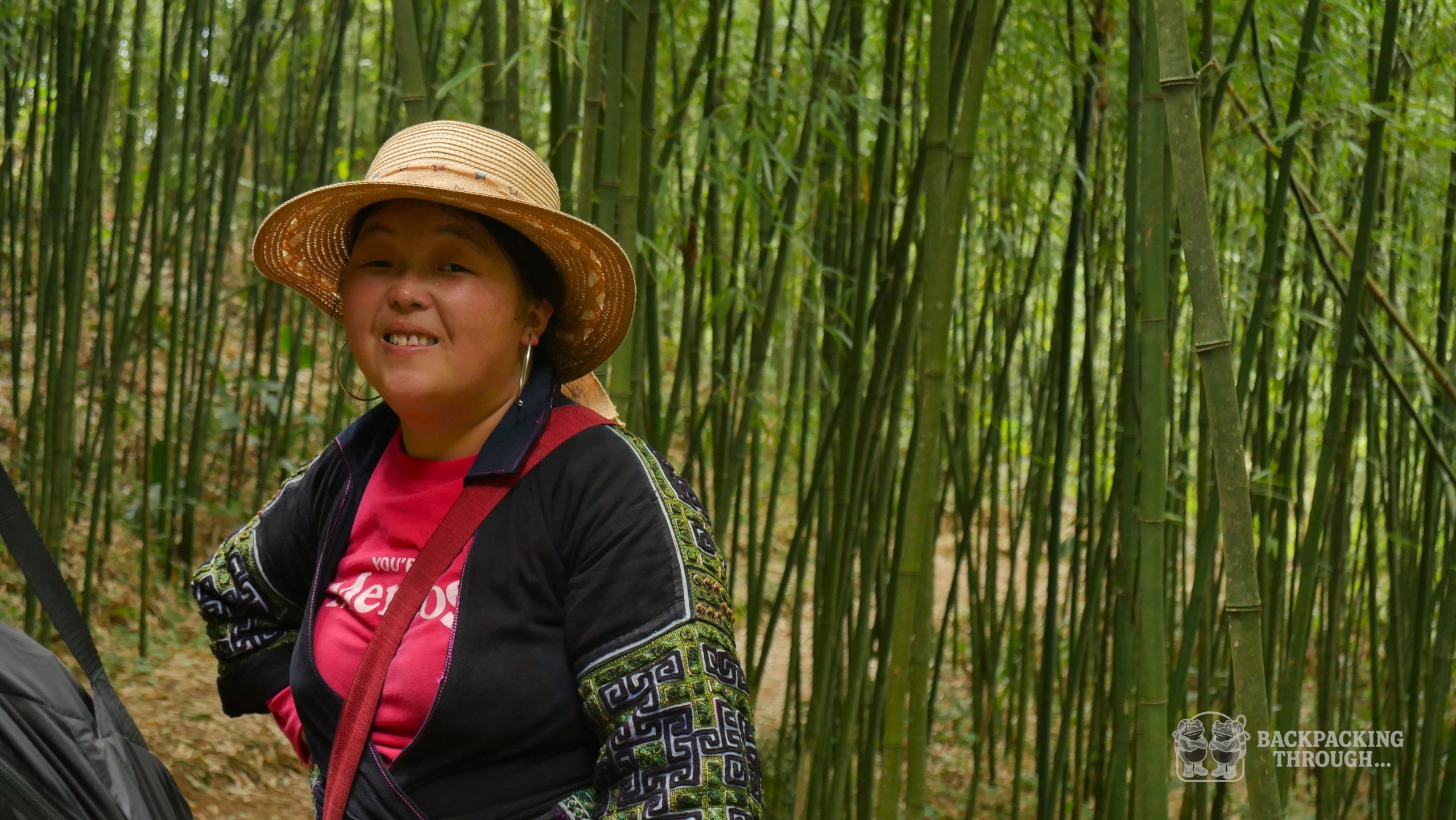
They mainly dedicate themselves to three activities. The first is mountain farming, with their famous rice, hemp, and indigo plantations. The rice fields stretch along the hillsides in stepped terraces, creating a very striking landscape.
The second is textile production, made from hemp fibers that they grow themselves, hand-dyed with indigo and decorated with vibrant, characteristic embroidery, which, besides being decorative, holds spiritual meaning in their culture. If you visit Sapa, you’ll see many Hmong women selling handmade bags, scarves, and other fabric products.
Finally, many women learn English on their own and work as guides on trekking routes to villages such as Lao Chai, Ta Van, or Y Linh Ho.
Mama Vu Vi
Mama Vu Vi is one of the Hmong women from the village of Lao Chai who work as trekking guides for tourists. She is incredibly fun and very warm, having learned both English and quite a bit of Spanish on her own through the tourists she has hosted. She welcomed us with great hospitality and explained countless things about her culture.
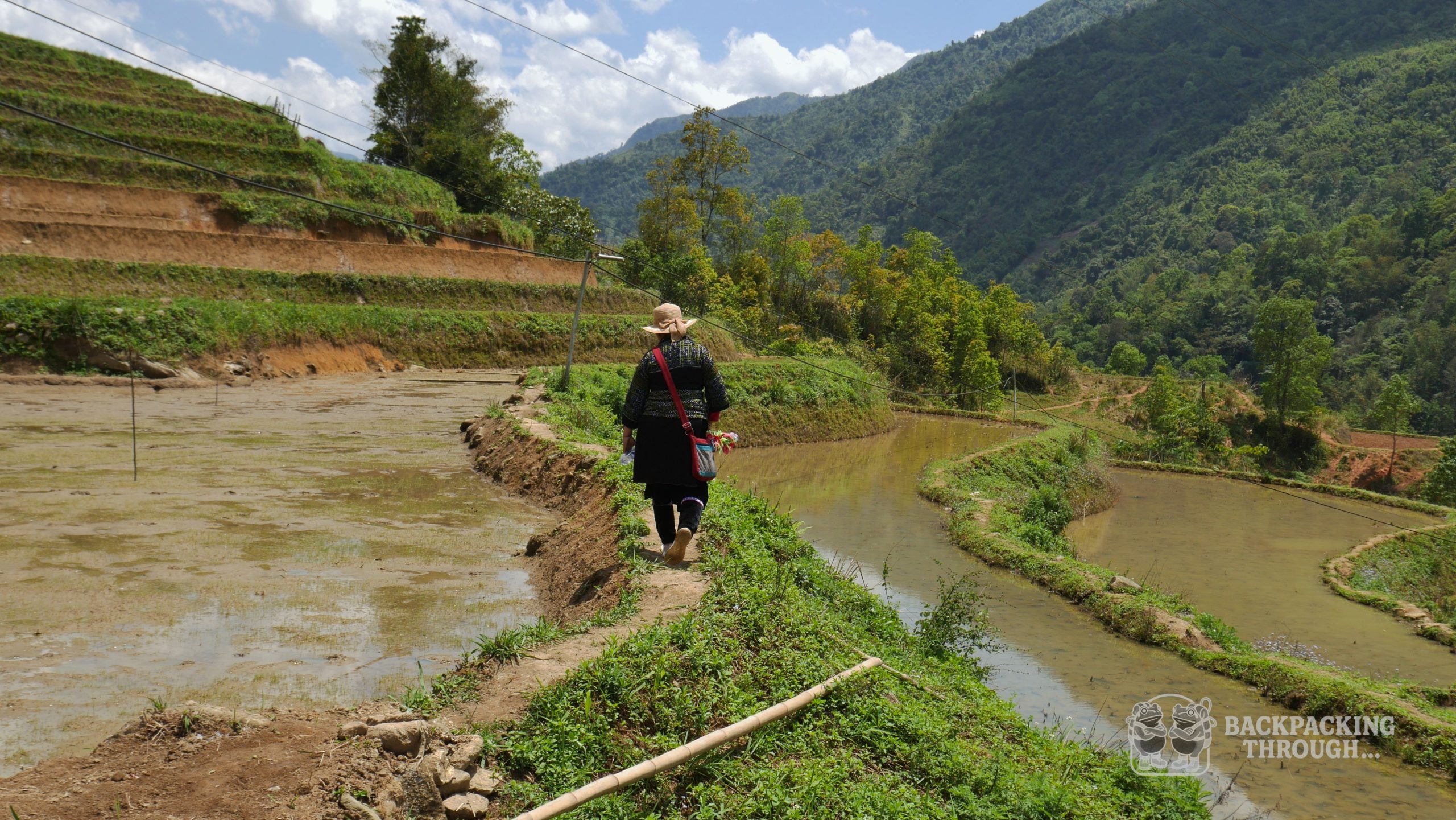
She told us that she has been doing this since she was very young. At first, without knowing any English, she would go to the bus stop or the train station in Lào Cai with a note written in English, offering tourists her trekking and homestay services.
Nowadays, she is very popular, especially among groups of Spanish tourists, as she has been recommended in several travel blogs. Her clients get in touch with her through Facebook.
Our Experience: First Day of Trekking.
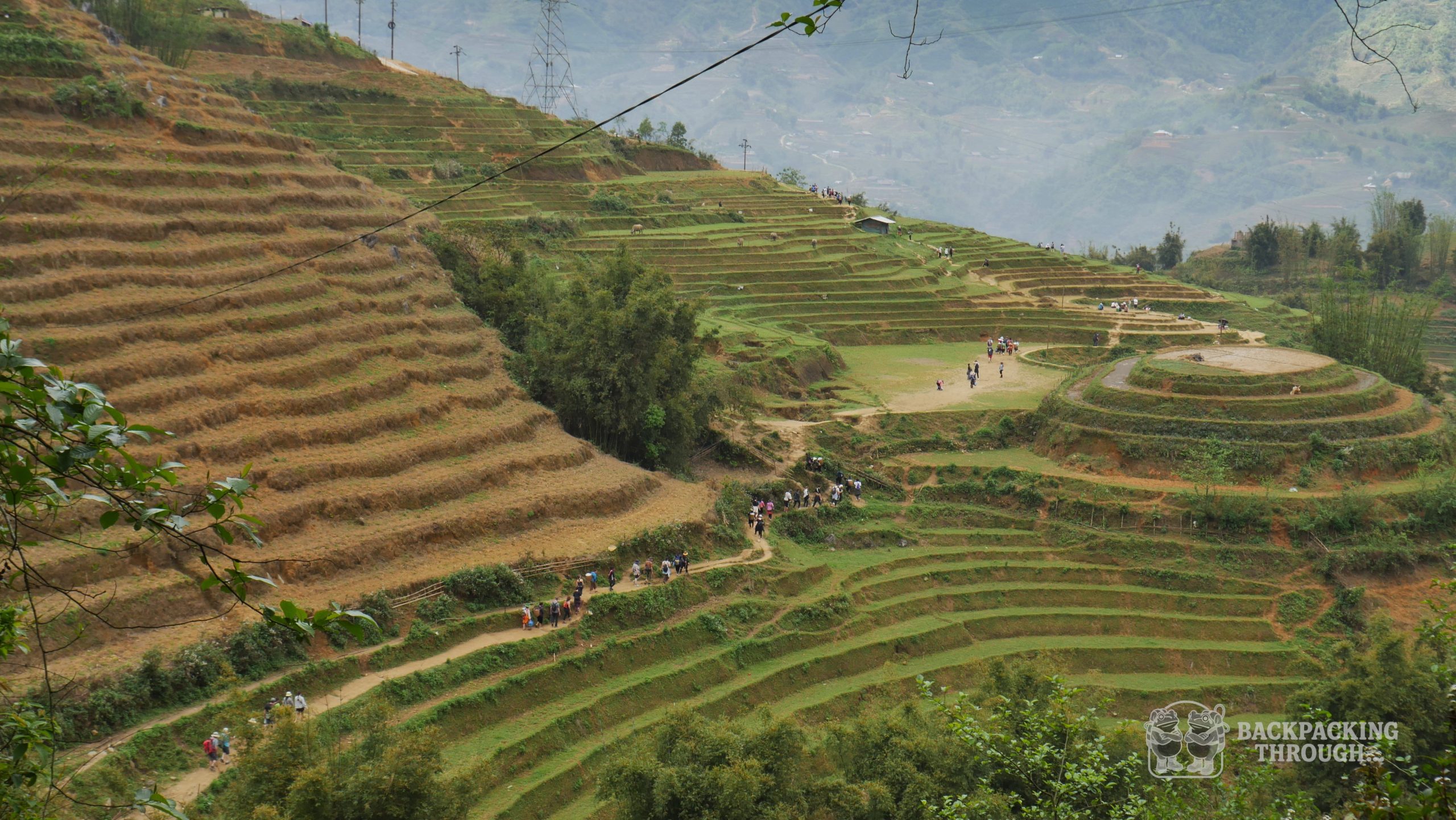
We contacted Mama Vu Vi a few days before going to Sapa and took a bus there after a long and winding journey (if, like me, you get carsick easily, I recommend being prepared or taking some motion sickness medicine if needed). We arrived a couple of days before the date we had arranged with her and took the opportunity to explore the town.
On the day of the trek, early in the morning, her brother and brother-in-law came to pick us up at the hotel on their motorbikes to drop us off at the meeting point and take our luggage. There, we met three other Spaniards who were going to do the route with us. After a while, Mama Vu Vi’s sister-in-law arrived, who was going to guide us that day since Mama Vu Vi was busy in the morning.
We took a long route through the rice fields, walking through incredible landscapes. We also passed by the indigo plantations, and they explained how it was used to dye their fabrics that characteristic deep blue color.
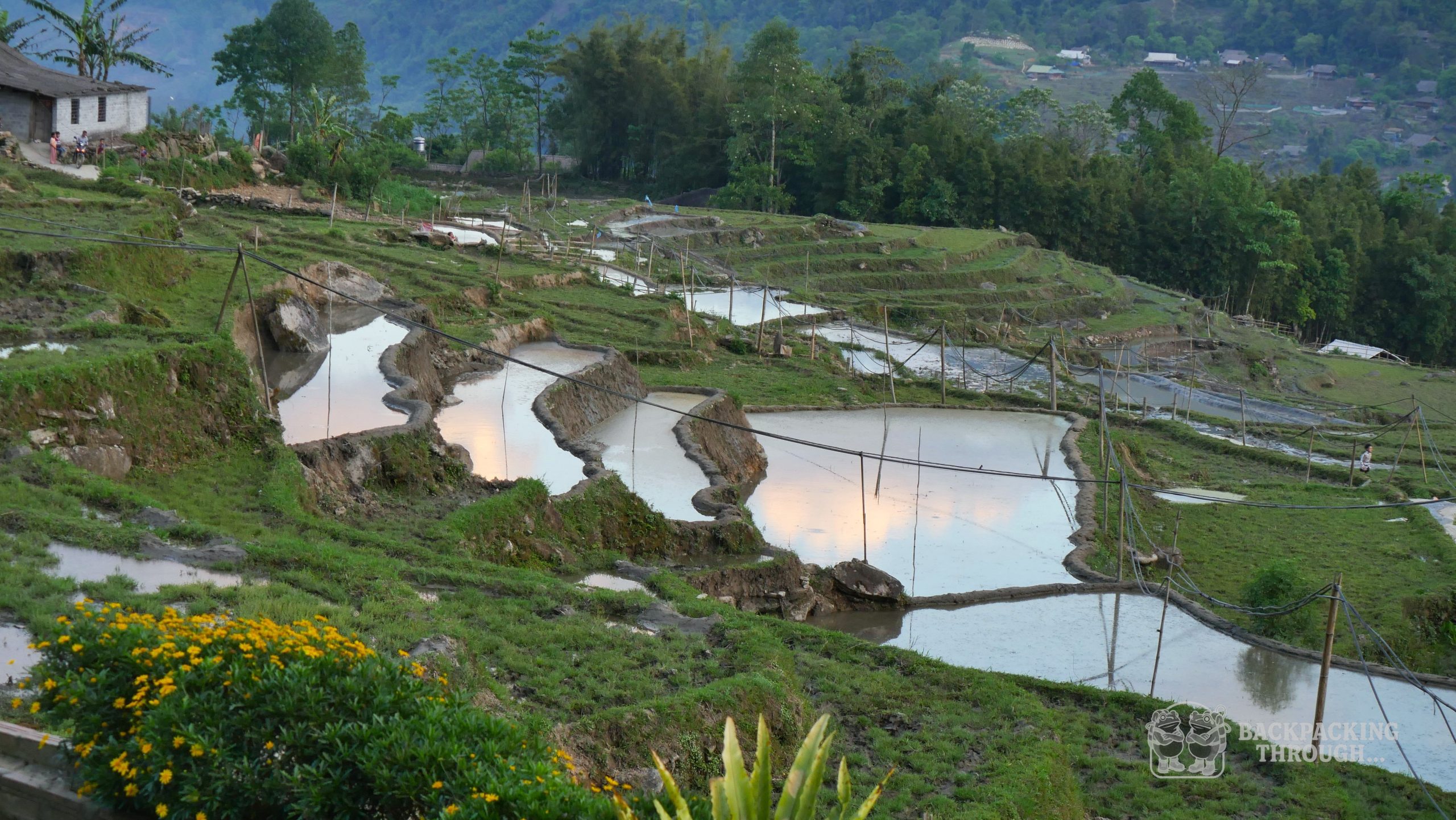
After several hours on the road, we ate at a restaurant, where they served us a simple but very tasty meal. Afterwards, we continued our route until we finally arrived at Mama Vu Vi’s house, where she welcomed us and showed us to the rooms where we would be staying that night.
The Night at Mama Vu Vi’s House
After a long-awaited shower and a bit of rest, we went down to the kitchen, where Mama Vu Vi, along with her eldest daughter, had already started preparing dinner. The whole group helped her while chatting, and they taught us how to make the typical Vietnamese spring rolls.
Later, Mama Vu Vi’s sister-in-law arrived again with her children, along with a friend of the eldest daughter, and we all had dinner together in the living room. At the end of the meal, they offered us beers and a few shots of Happy Water (a very typical Vietnamese rice liquor) to toast.
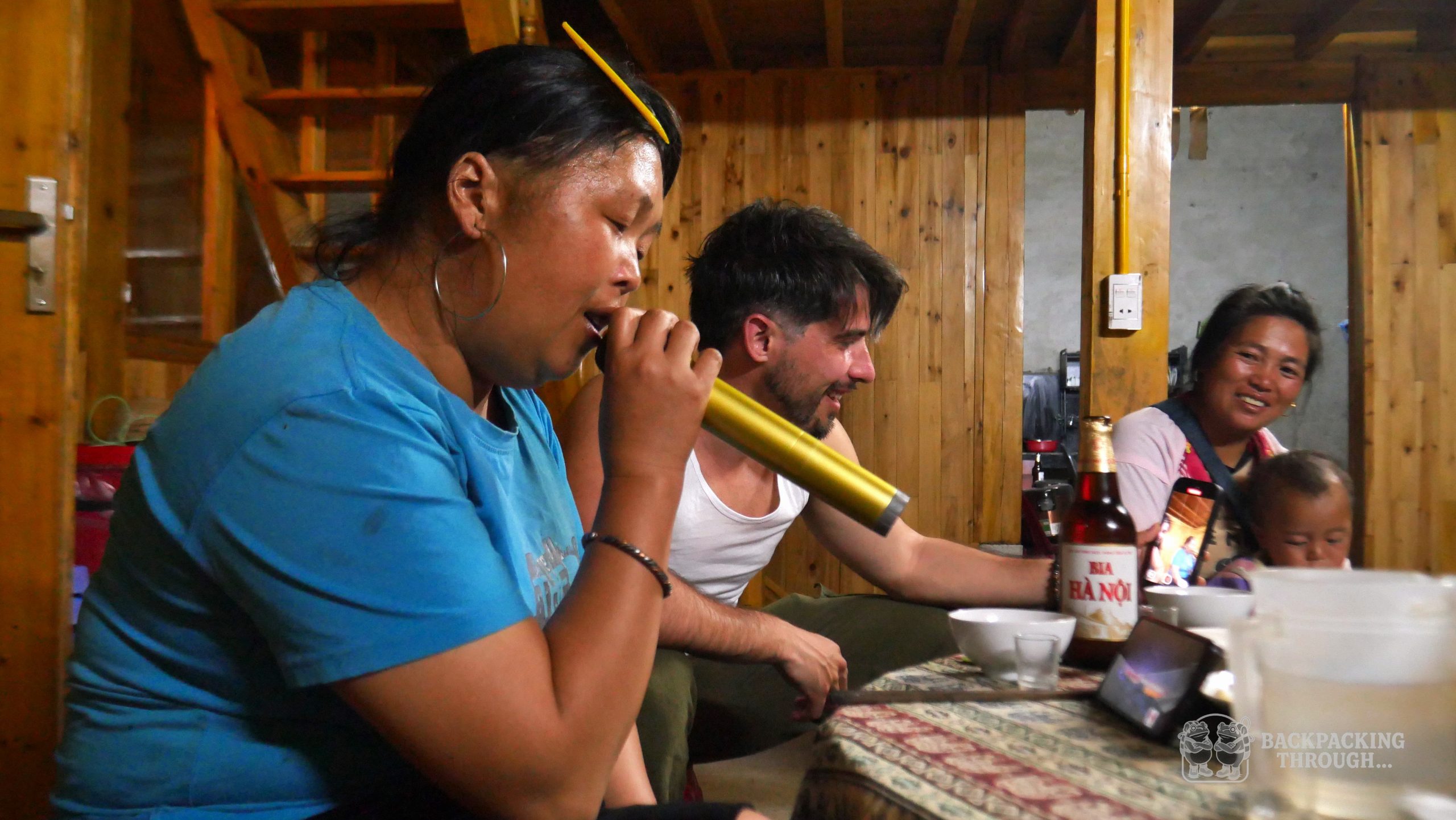
Since we were all up for it, Mama Vu Vi brought out the karaoke and started singing herself. Little by little, we all joined in; the family taught us songs in Vietnamese, and we taught them some Spanish classics, like Estopa, in addition to singing together some internationally famous songs, such as Baby by Justin Bieber.
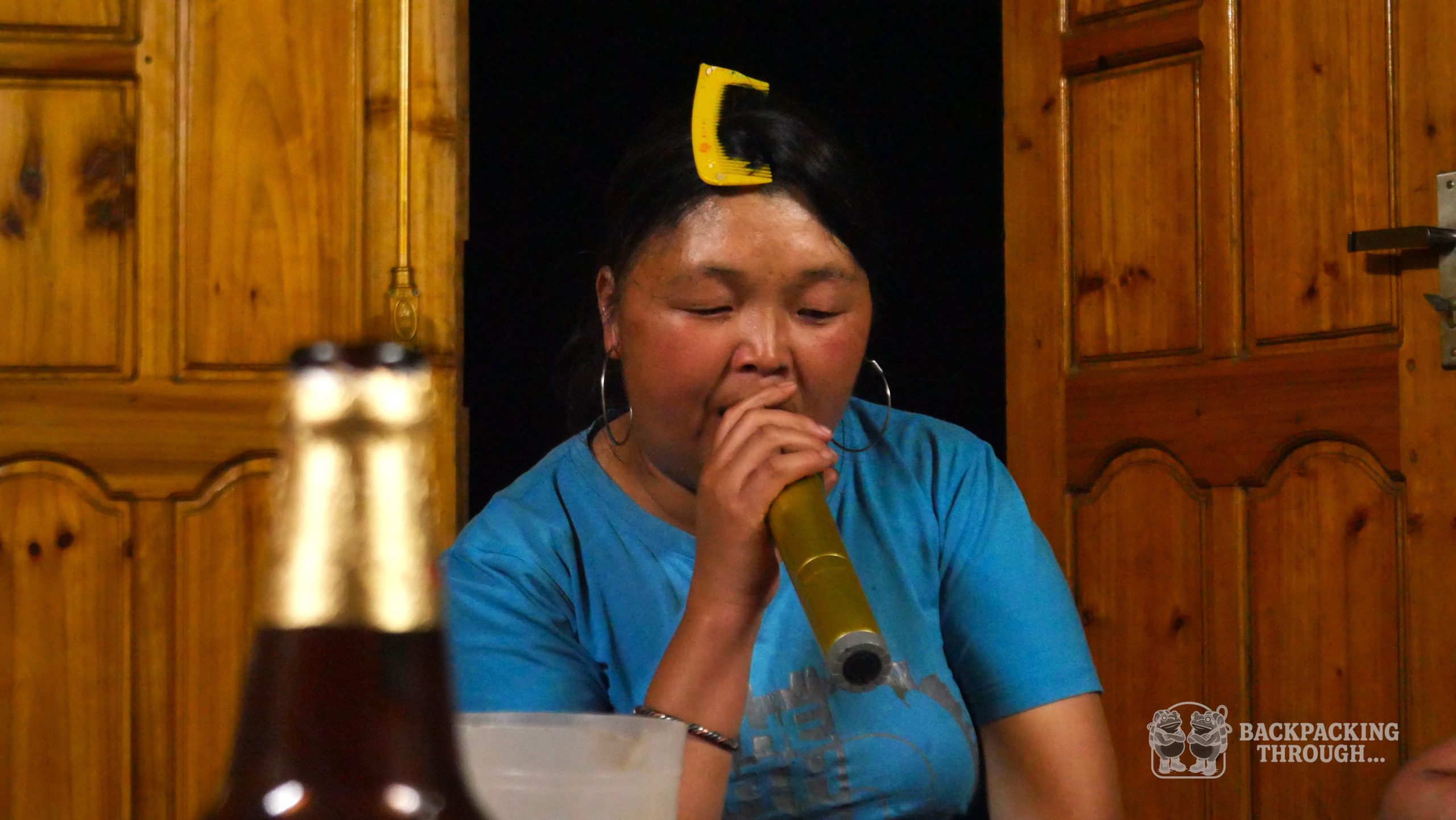
We went out to the patio to keep singing, and the older girls taught us TikTok dances, while Mama Vu Vi kept giving us more Happy Water and made us dance until none of us could go on. Finally, we all went to sleep.
Second Day of Trekking
When we woke up the next day, Mama Vu Vi prepared us a breakfast of fruit and pancakes before starting that day’s route, which was a bit easier than the previous day since we were somewhat tired from so much walking and staying up late.
She took us to her village, Lao Chai, passing through many rice fields, and also showed us the bamboo forests. While walking, she taught us some words in her Hmong language, such as “thank you”, which is pronounced approximately “ua chao”.
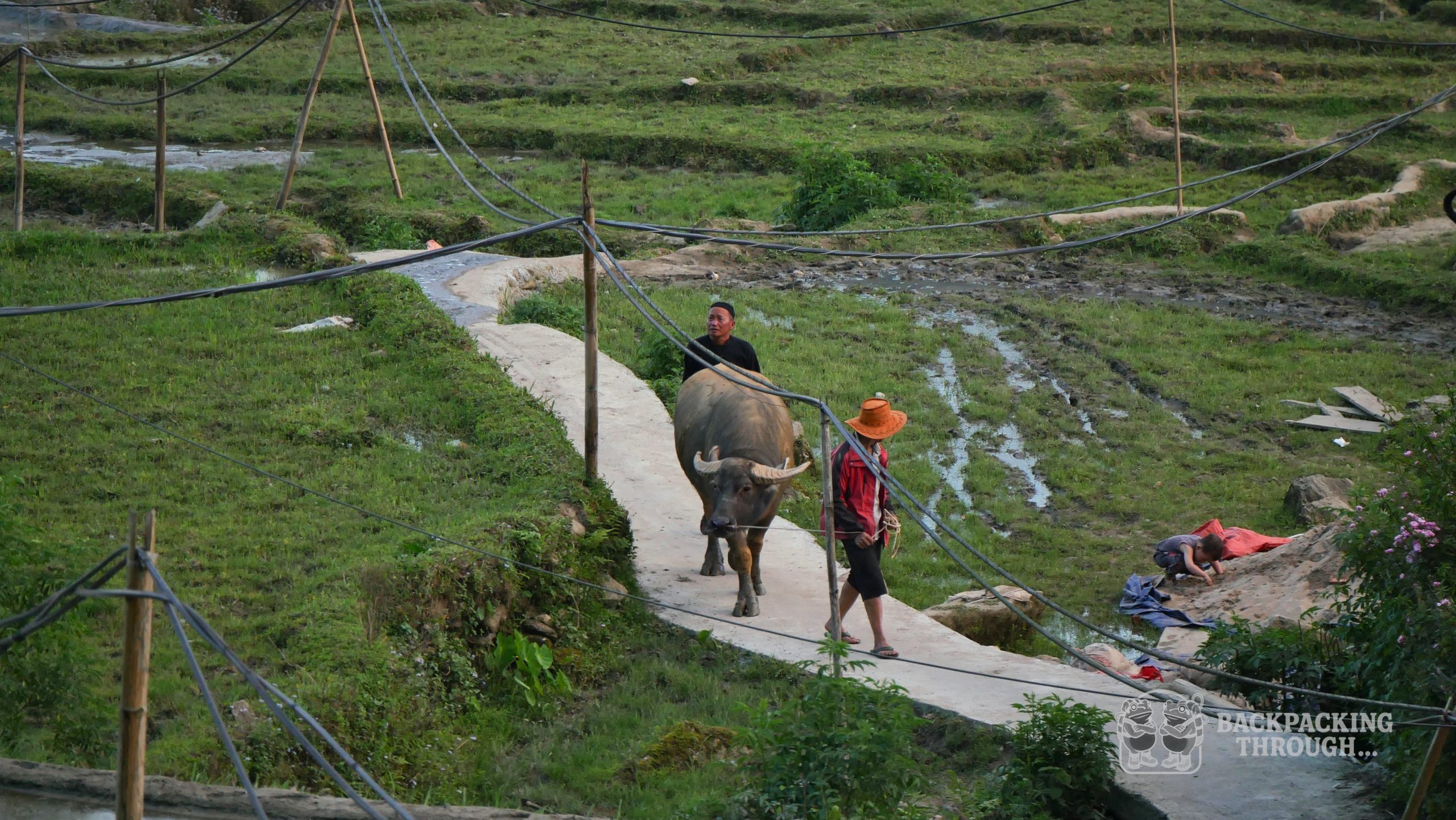
We had lunch again at a restaurant halfway through, and then walked to a nearby village, where we finally said our goodbyes. A taxi came to pick us up and take us back to the center of Sapa along with our luggage.
Farewell
I remember arriving at the hotel that day with a strong emotional hangover after such intense days. We were lucky to share this experience with a group of three other people who were very much like us, and with whom we connected deeply in a very short time.
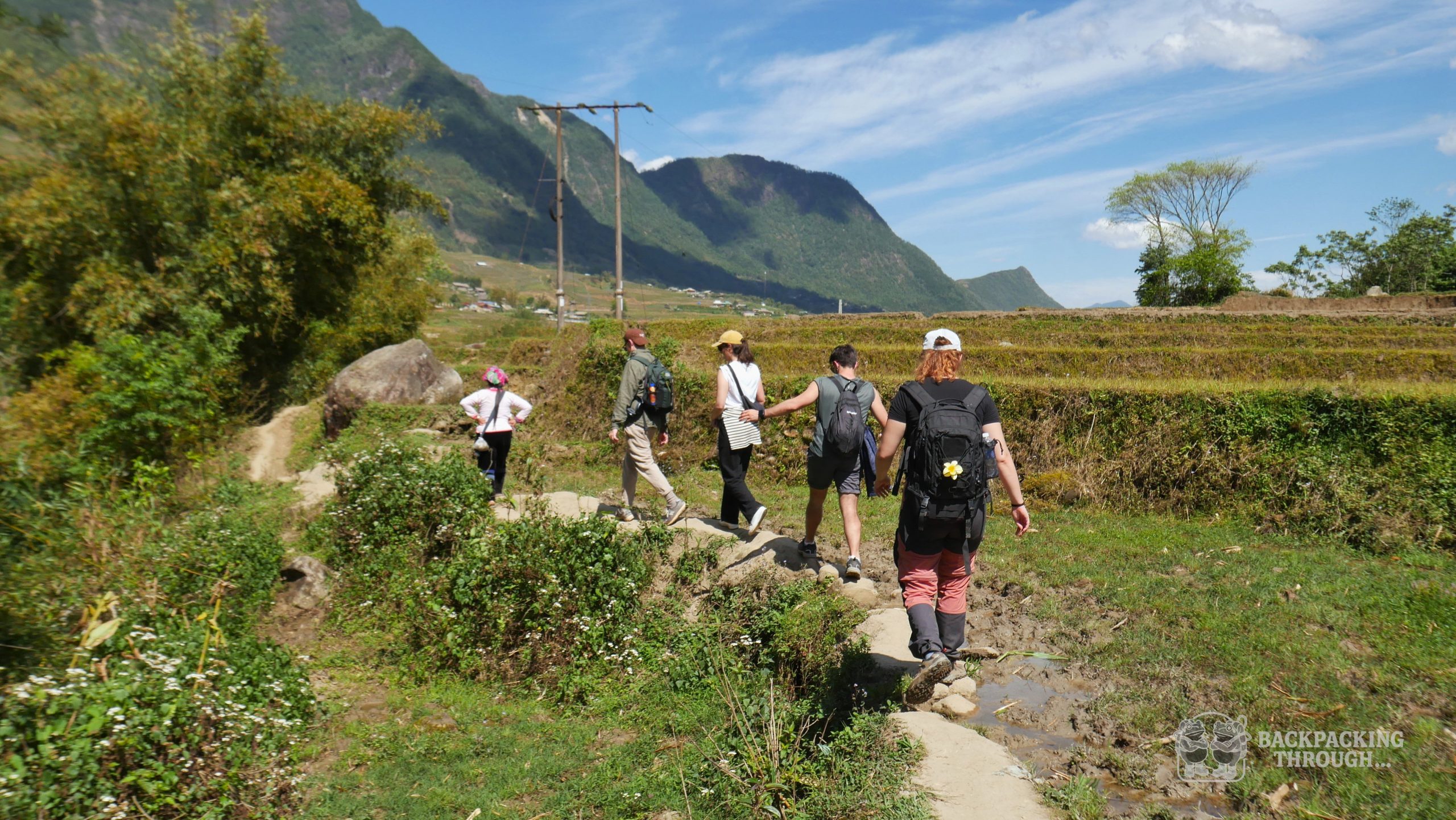
We also came across a guide who spent the whole day joking and laughing, just like her sister-in-law; both of them made those days incredibly fun.
Honestly, I don’t know if anyone else has had an experience as, as amazing as the one we had, but without a doubt, I think it’s worth trying—whether with Mama Vu Vi or with any of the many other Hmong women dedicated to this.

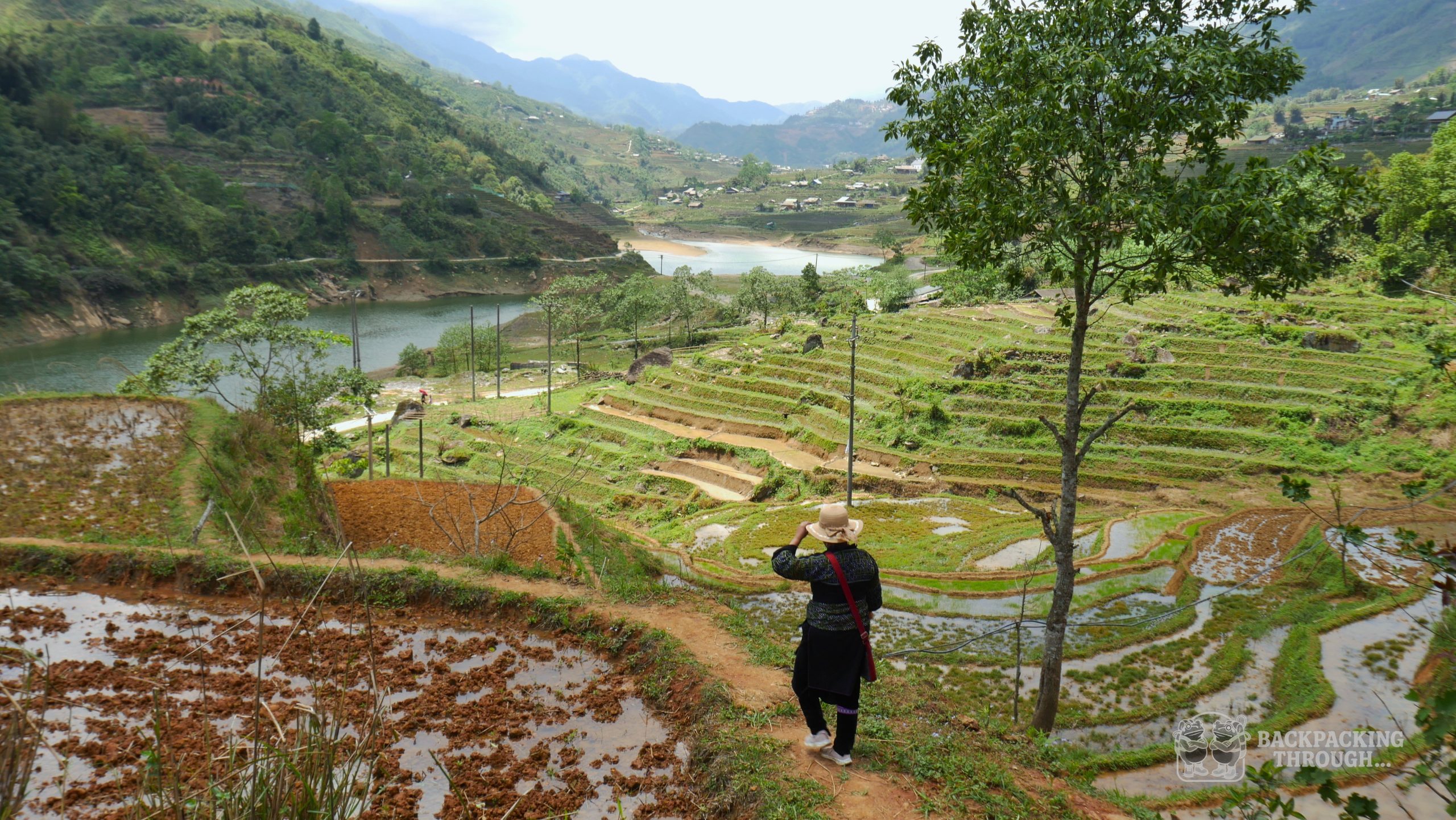
Leave a Reply